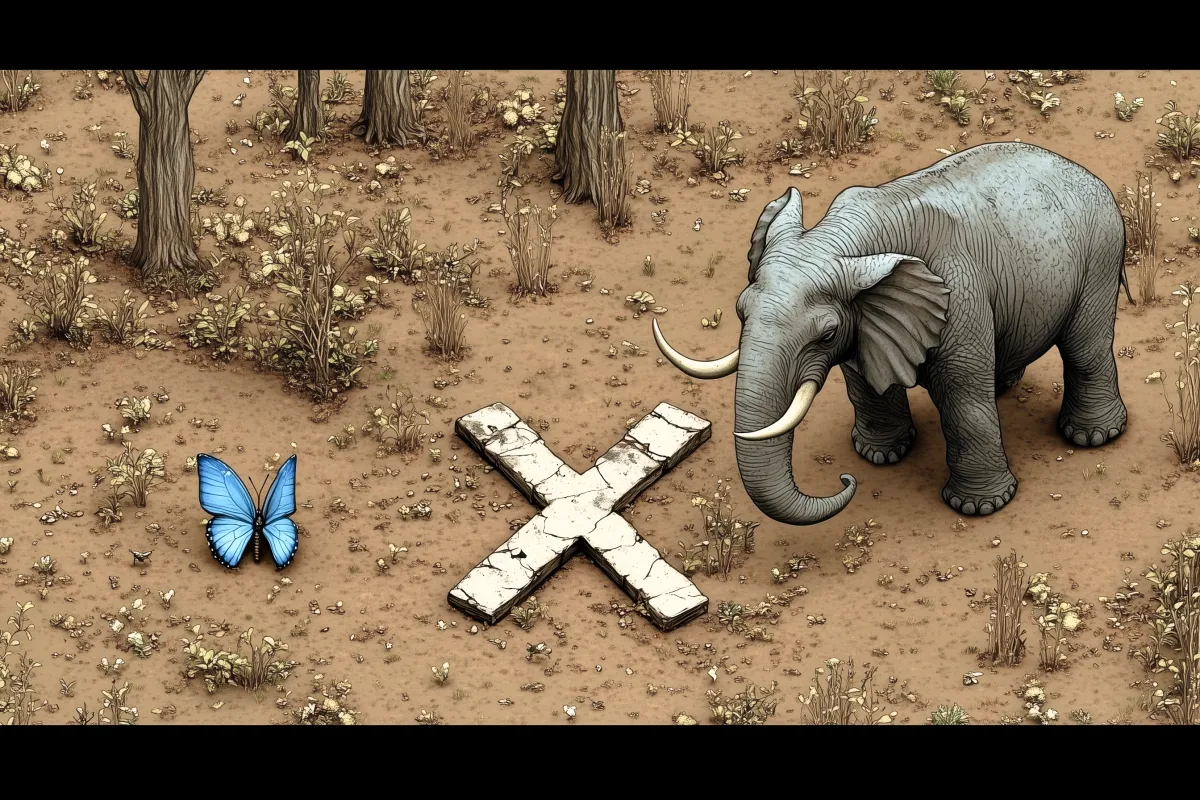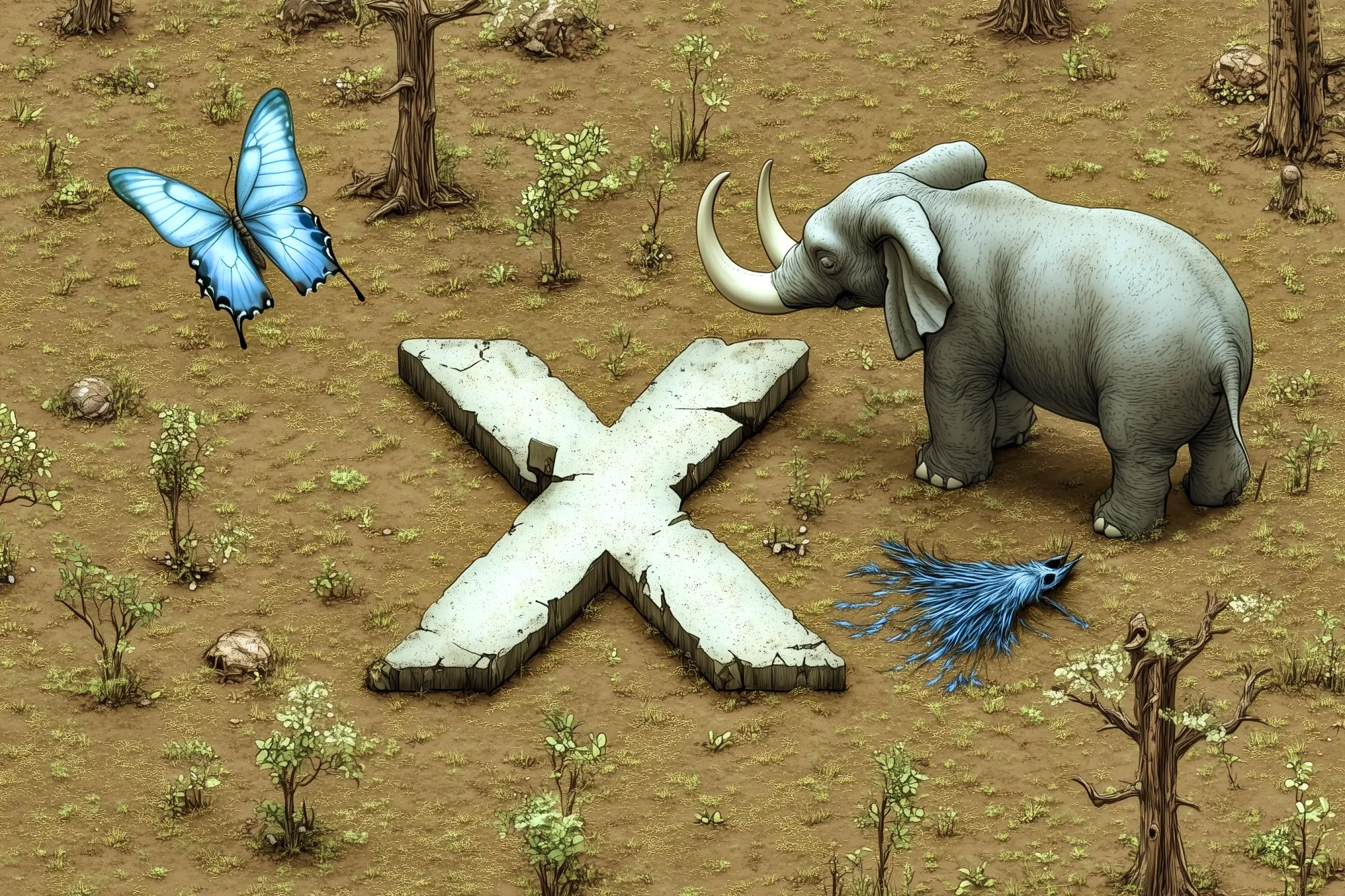What comes after Twitter?
And are we wordsmiths doomed to be replaced by the video stars?

Despite the predictions of doom, X lives on. Some people are even actively using it — even if I'm not. But is the TikTok-ification of the internet an unstoppable process that will kill all text-based media, including the ex-Twitter?
Nah.
But let's explore what's actually happening here.
The slow death of Social Networks
Social Networks do die. People do not use MySpace, Bebo, Orkut or Google+ these days. But it takes a bloomin’ long time on occasions, as eConsultancy’s Rebecca Sentance reminded me in the comments yesterday:
Another counter-point: a lot of commentators fail to appreciate how slow the death of a platform that's been a lynchpin to many people's online lives tends to be. This was seen with LiveJournal after Six Apart purged queer and adult content en masse. It happened in 2007 but I was still merrily using LJ in 2010 completely unaware of this. It takes a long, long time for a popular platform to die especially when alternatives don't provide the same feature set or community that appealed with the old one.
(I am contractually obliged to point out that Bex is a former student…)
And that’s a good point; X is clearly in the “Livejournal after the purge” stage. (I’d argue that the sale of it to a Russian company in 2007 was as big a part of the decline as the purge, but that’s straying too far off-topic.)
X/Twitter user numbers now down by almost a third over the last year in the UK, and by almost a fifth in the US. pic.twitter.com/LdqXrSbcJ9
— John Burn-Murdoch (@jburnmurdoch) September 23, 2024
It’s interesting to consider whether there’s a transitional stage, where the old platform still has enough usage that you can usefully corral and transport a particular community to another platform. Bluesky seems to be working hard to do that. There’s a handy Chrome extension for finding your Twitter contacts on the new service, for example.

But the problem of large-scale social networks remains the same, as a recent article on The Conversation highlighted:
The problem for Bluesky, and to a lesser extent Mastodon, is that once a platform gains traction it also attracts those with bad intent. Think of it as the one nice, cool bar in town that suddenly becomes popular. Once everyone hears about the bar, the troublemakers start to arrive.
When that happens, the good people have to find a bar elsewhere.
It’s very notable that, amongst the other digitally focused academics I talk to, they see a consistent pattern that recent undergraduates do not use the public social networks. They might consume content on TikTok, or have private instagram accounts, but much of their networking happens in chat apps.
And that might be a more sustainable future: different communities exit X to different platforms. None of them reach the critical mass of the old platforms — and that might make them more socially sustainable in the long term.
Is that going to be more challenging for journalists and audience teams than the world of the 2010s? Of course. But it might allow less of a broadcast and more of a community connection approach. And that can only be a good thing.
Betteridge of the day: Is the text internet over?
Ryan Broderick, pondering the emergent social networks:
We are experiencing a shift in communication as existential as climate change with ripple effects just as varied and unpredictable. But what is already very apparent is that nostalgia will not fix this. Bluesky has built a better version of what Twitter used to be, but if it wants to actually build a better version of what Twitter could be, it needs to evolve into something else entirely.
He is, of course, talking about the rise of TikTok and video as the dominant medium of the internet. And he concludes:
I’m sure plenty of Bluesky power users will read this and say, “Who cares. I’m happy with a tiny site that feels like a memory of how I used to use the internet.” Fair enough. But one day you’ll be the last person writing words on the web and wonder where everyone went.
To which I say: stuff and nonsense, Mr Broderick. Just as cinema and TV became the dominant forms of media in the pre digital age, reducing newspapers and books to relatively smaller scale pursuits, so too might internet video push text into a corner. But, as I often tell myself, size isn’t everything, and one only needs look at the rise of the thoughtful, in-depth newsletter — like the very one Mr Broderick is writing — to see that the days of text are far from over. And those smaller, textual parts of the internet might have an out-size influence on the world’s decision makers.
Quickies
- 🎧 Independent Podcast Awards winners, 2024. Lots of interesting listening in there.
- 🎙️ Om ponders (lots of pondering today) the problem with podcasts. I’m clearly choosing well. Few of my podcasts suffer from this.
- 💰 Reach is back on the “hire” side of the hire/fire cycle. It’s exhausting to watch (Baekdal voice) as a media analyst. Goodness knows how it feels to work there.
- 😎 Interesting move by Bloomberg to do something different at weekends. People who just produce more of the same at the weekend are missing a trick.
- 🍑 Is OnlyFans moving beyond the saucy?
The price of the Attention War
Lewis Stevenson, from Derby, fell from Castilla La Mancha bridge, outside the city of Talavera de la Reina, on Sunday. Spanish authorities said Mr Stevenson was climbing the 192m (630ft) structure to "create content for social networks".
In a saturated content market, fighting for attention sometimes involves going to ridiculous extremes. The guy was 26. What a waste.
[via PetaPixel]
And finally…
Video killed the text radio star
Because I've had it in my head since writing the second section of this post…





